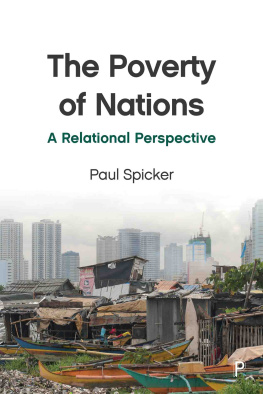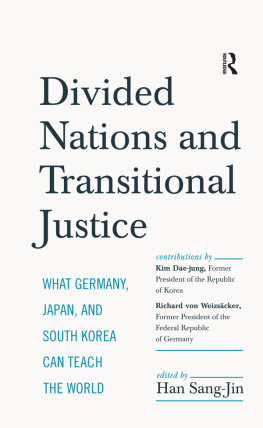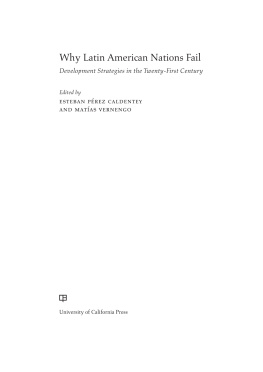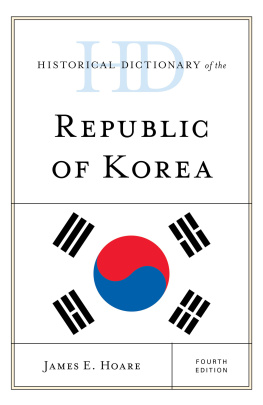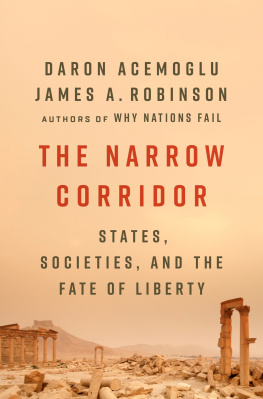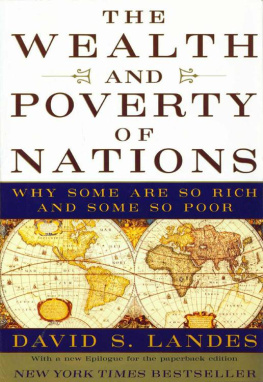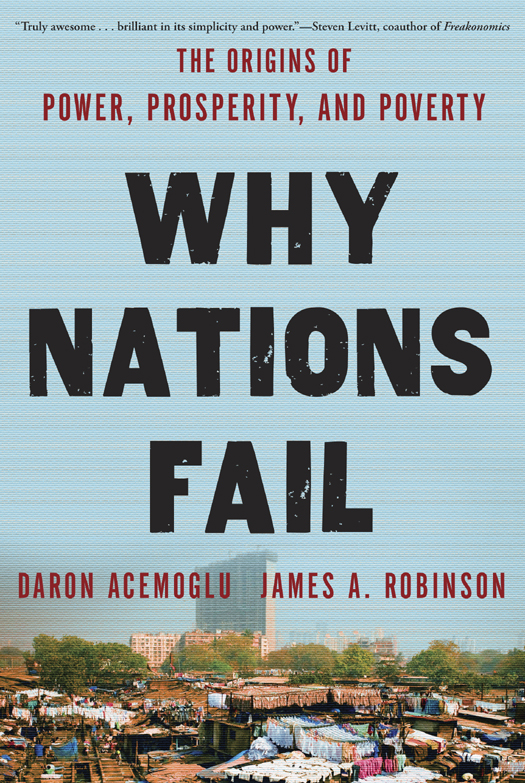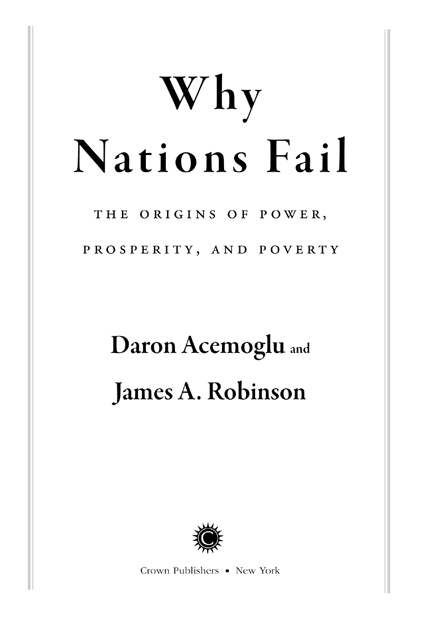P RAISE FORWhy Nations Fail
Acemoglu and Robinson have made an important contribution to the debate as to why similar-looking nations differ so greatly in their economic and political development. Through a broad multiplicity of historical examples, they show how institutional developments, sometimes based on very accidental circumstances, have had enormous consequences. The openness of a society, its willingness to permit creative destruction, and the rule of law appear to be decisive for economic development.
Kenneth J. Arrow, Nobel laureate in economics, 1972
The authors convincingly show that countries escape poverty only when they have appropriate economic institutions, especially private property and competition. More originally, they argue countries are more likely to develop the right institutions when they have an open pluralistic political system with competition for political office, a widespread electorate, and openness to new political leaders. This intimate connection between political and economic institutions is the heart of their major contribution, and has resulted in a study of great vitality on one of the crucial questions in economics and political economy.
Gary S. Becker, Nobel laureate in economics, 1992
This important and insightful book, packed with historical examples, makes the case that inclusive political institutions in support of inclusive economic institutions is key to sustained prosperity. The book reviews how some good regimes got launched and then had a virtuous spiral, while bad regimes remain in a vicious spiral. This is important analysis not to be missed.
Peter Diamond, Nobel laureate in economics, 2010
For those who think that a nations economic fate is determined by geography or culture, Daron Acemoglu and Jim Robinson have bad news. Its manmade institutions, not the lay of the land or the faith of our forefathers, that determine whether a country is rich or poor. Synthesizing brilliantly the work of theorists from Adam Smith to Douglass North with more recent empirical research by economic historians, Acemoglu and Robinson have produced a compelling and highly readable book.
Niall Ferguson, author ofThe Ascent of Money
Acemoglu and Robinsontwo of the worlds leading experts on developmentreveal why it is not geography, disease, or culture that explain why some nations are rich and some poor, but rather a matter of institutions and politics. This highly accessible book provides welcome insight to specialists and general readers alike.
Francis Fukuyama, author ofThe End of History and the Last ManandThe Origins of Political Order
A brilliant and uplifting bookyet also a deeply disturbing wake-up call. Acemoglu and Robinson lay out a convincing theory of almost everything to do with economic development. Countries rise when they put in place the right pro-growth political institutions and they failoften spectacularlywhen those institutions ossify or fail to adapt. Powerful people always and everywhere seek to grab complete control over government, undermining broader social progress for their own greed. Keep those people in check with effective democracy or watch your nation fail.
Simon Johnson, coauthor of13 Bankersand professor at MIT Sloan
Two of the worlds best and most erudite economists turn to the hardest issue of all: why are some nations poor and others rich? Written with a deep knowledge of economics and political history, this is perhaps the most powerful statement made to date that institutions matter. A provocative, instructive, yet thoroughly enthralling book.
Joel Mokyr, Robert H. Strotz Professor of Arts and Sciences and Professor of Economics and History, Northwestern University
In this delightfully readable romp through four hundred years of history, two of the giants of contemporary social science bring us an inspiring and important message: it is freedom that makes the world rich. Let tyrants everywhere tremble!
Ian Morris, Stanford University, author ofWhy the West Rulesfor Now
Imagine sitting around a table listening to Jared Diamond, Joseph Schumpeter, and James Madison reflect on more than two thousand years of political and economic history. Imagine that they weave their ideas into a coherent theoretical framework based on limiting extraction, promoting creative destruction, and creating strong political institutions that share power, and you begin to see the contribution of this brilliant and engagingly written book.
Scott E. Page, University of Michigan and Santa Fe Institute
In this stunningly wide-ranging book, Acemoglu and Robinson ask a simple but vital question, why do some nations become rich and others remain poor? Their answer is also simplebecause some polities develop more inclusive political institutions. What is remarkable about the book is the crispness and clarity of the writing, the elegance of the argument, and the remarkable richness of historical detail. This book is a must-read at a moment when governments across the Western world must come up with the political will to deal with a debt crisis of unusual proportions.
Steven Pincus, Bradford Durfee Professor of History and International and Area Studies, Yale University
Its the politics, stupid! That is Acemoglu and Robinsons simple yet compelling explanation for why so many countries fail to develop. From the absolutism of the Stuarts to the antebellum South, from Sierra Leone to Colombia, this magisterial work shows how powerful elites rig the rules to benefit themselves at the expense of the many. Charting a careful course between the pessimists and optimists, the authors demonstrate history and geography need not be destiny. But they also document how sensible economic ideas and policies often achieve little in the absence of fundamental political change.
Dani Rodrik, Kennedy School of Government, Harvard University
This is not only a fascinating and interesting book: it is a really important one. The highly original research that Professors Acemoglu and Robinson have done, and continue to do, on how economic forces, politics, and policy choices evolve together and constrain each other, and how institutions affect that evolution, is essential to understanding the successes and failures of societies and nations. And here, in this book, these insights come in a highly accessible, indeed riveting form. Those who pick this book up and start reading will have trouble putting it down.
Michael Spence, Nobel laureate in economics, 2001
This fascinating and readable book centers on the complex joint evolution of political and economic institutions, in good directions and bad. It strikes a delicate balance between the logic of political and economic behavior and the shifts in direction created by contingent historical events, large and small, at critical junctures. Acemoglu and Robinson provide an enormous range of historical examples to show how such shifts can tilt toward favorable institutions, progressive innovation, and economic success or toward repressive institutions and eventual decay or stagnation. Somehow they can generate both excitement and reflection.
Robert Solow, Nobel laureate in economics, 1987


